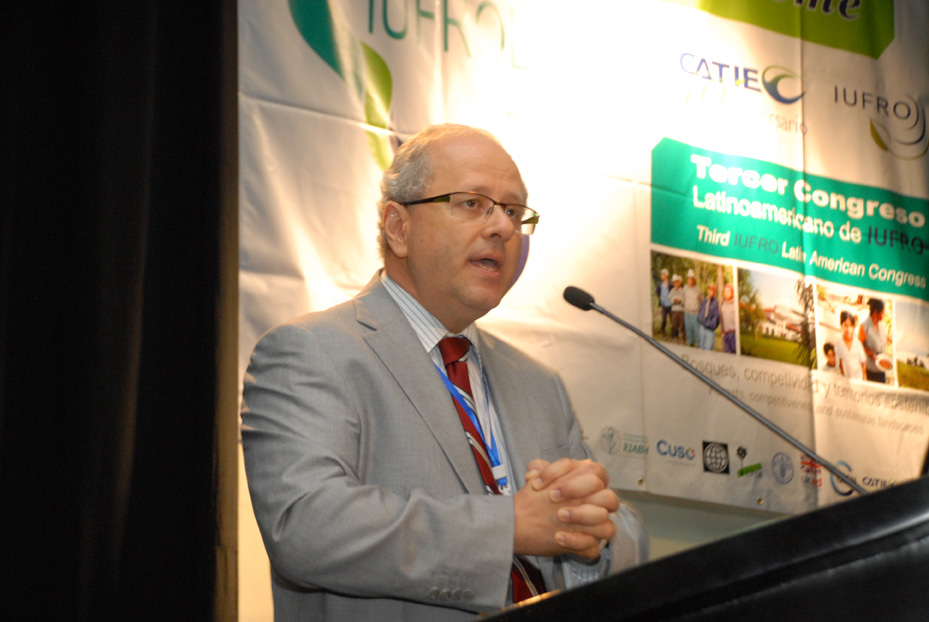Youth Forest Policy Days (YFPD) – 1-3 December 2022
Youth Forest Policy Days (YFPD) – 1-3 December 2022
Guest blog by Juliet Achieng, European Forest Institute
The current global youth (15-24 years) population stands at 1.2 billion translating to 16% of the global population and is expected to rise further by 7% by 2030[1]. The youth have immense potential and can provide innovative solutions to promote development. The need for equipping the youth with knowledge and opportunities that will allow them to thrive and showcase their abilities has been highlighted numerous times. An example of a youth led initiative and first of its kind is the YFPD, a conference-like online event organized by youth for youth to enable the youth community to exchange knowledge and gain more insights about international forest policies. The three-day online event employed diverse formats such as workshops, plenary and parallel sessions and role play game. A living library session focusing on working life provided an opportunity for the participants to be inspired to take action by stories from fellow youth and other professionals in the sector. Through the networking session, the participants had the chance to meet and exchange ideas and experiences with the professionals and participants.
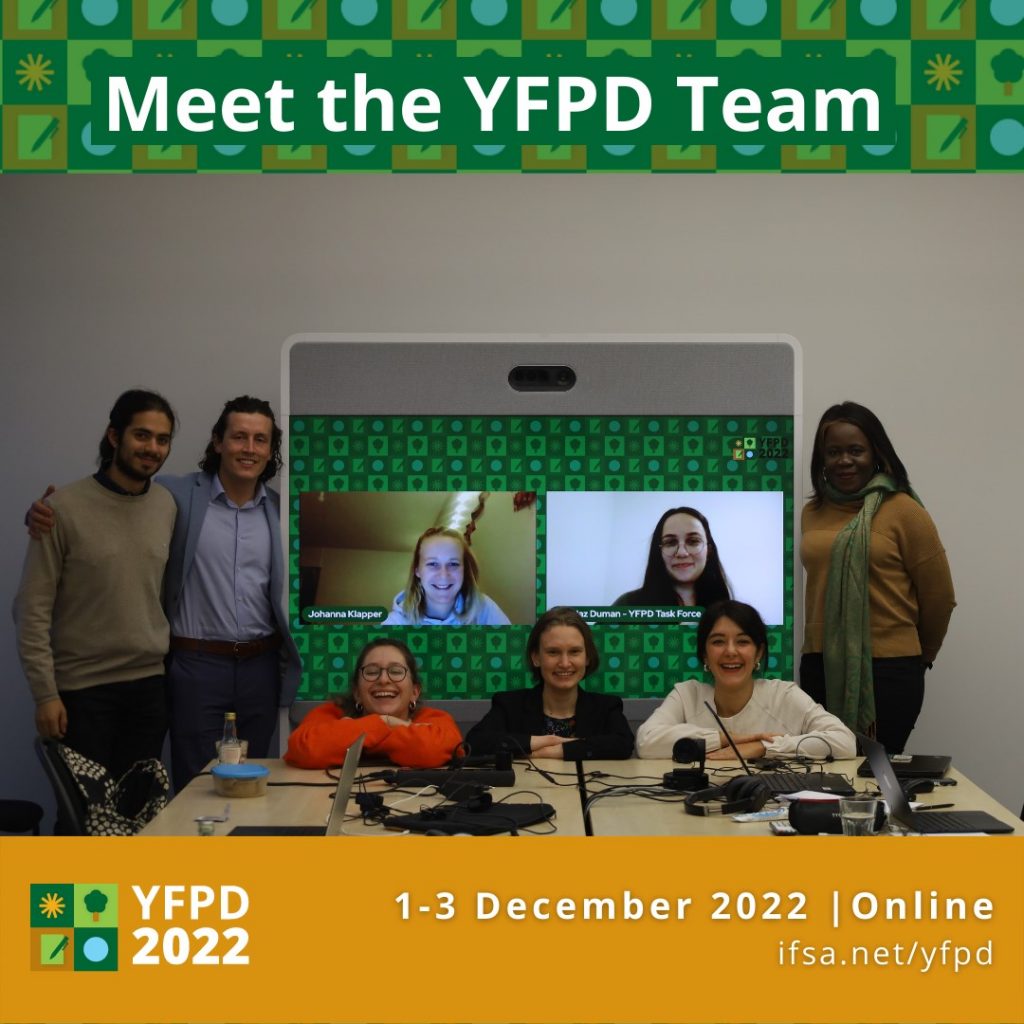
Congress Spotlight #71 – High Time to Again Pay More Attention to Ecological Processes in Sustainable Forest Management
Congress Spotlight #71 – High Time to Again Pay More Attention to Ecological Processes in Sustainable Forest Management
Human needs and our environment continue to change. Because of that, forest management practices, in terms of sustainable forest management (SFM), need to be updated, said Dr. Liu Shirong, Professor of Forest Ecology and Hydrology and President of the Chinese Academy of Forestry, Beijing, China.
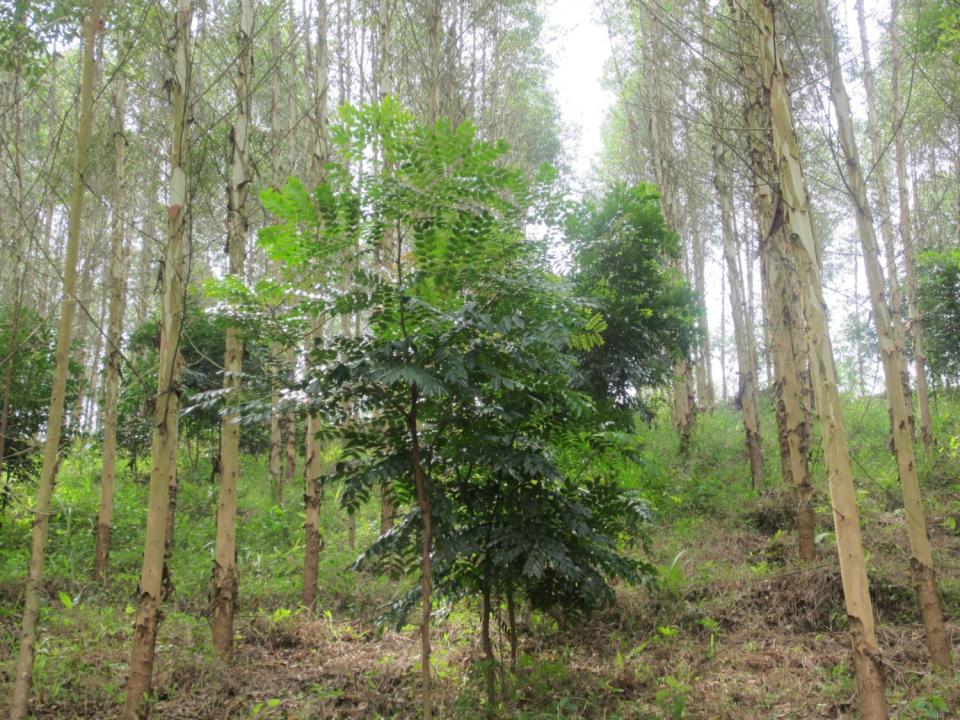
Congress Spotlight #69 – Sifting through underlying values and ethics to make sound nature management decisions
Congress Spotlight #69 – Sifting through underlying values and ethics to make sound nature management decisions
How does one decide how to manage a forest ethically?
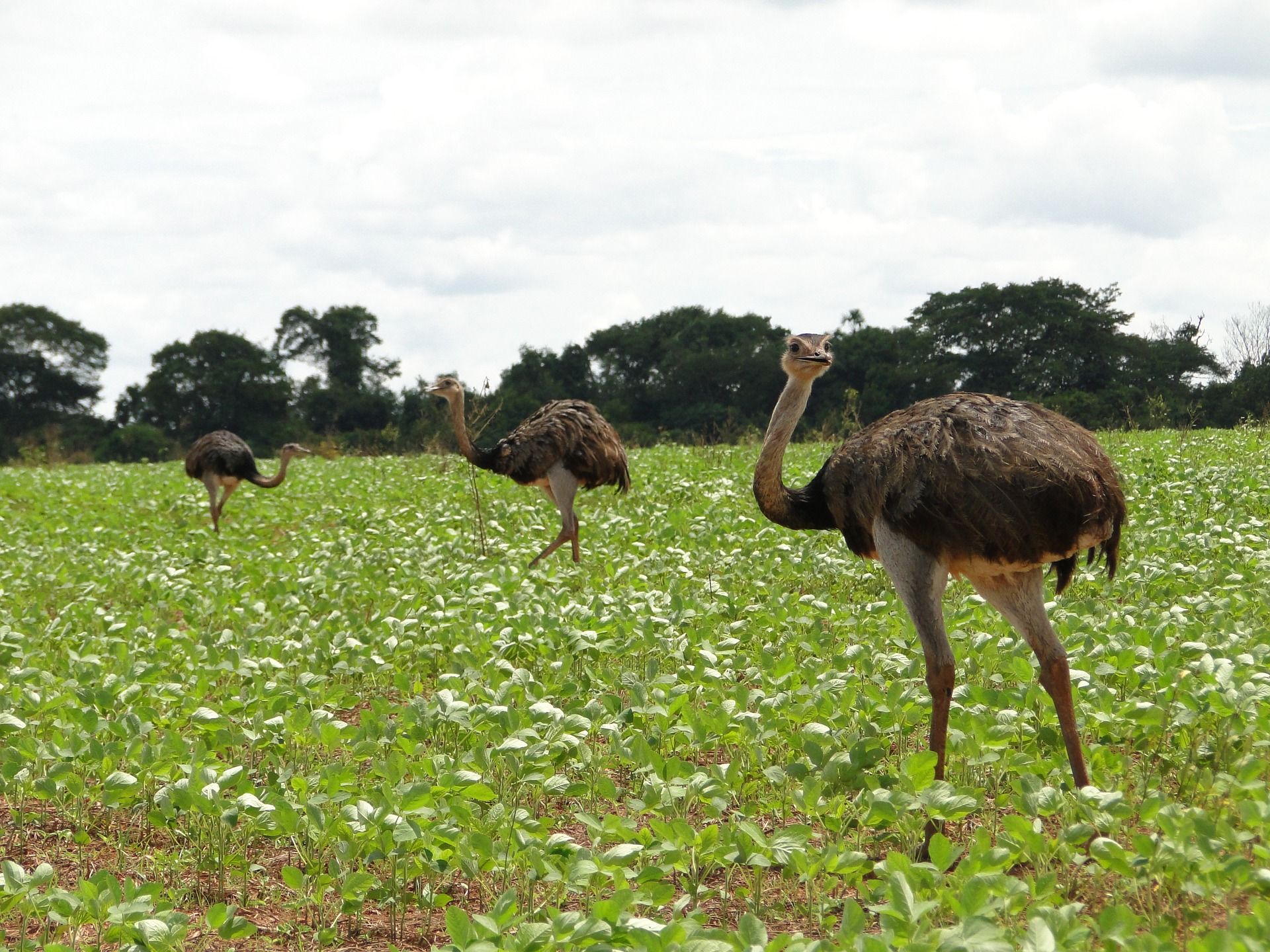
One could simply say: do the right thing. But, the right thing for whom? And defining right and wrong – concepts that can vary according to moral climate or individual circumstance – is not all that simple.
Read more…Spotlight #62 – How and why criteria and indicators have changed forest management since the Rio Summit

Regeneration is also covered by indicators for SFM. Photo: S. Linser.
Sparked in part by the Rio Earth Summit of 1992, the use of criteria and indicators (C&I) for sustainable forest management (SFM) has become an ever more present aspect of forest management.
Since that ’92 summit, “the focus of academic attention has been mainly on global forest governance with a research gap regarding regional (or international) forest related processes,” said Dr. Stefanie Linser of the European Forest Institute, who is also co-ordinator of IUFRO Working Party 9.01.05 on research and development of indicators for SFM. Read more…
Spotlight #59 – Shifting forest development discourses
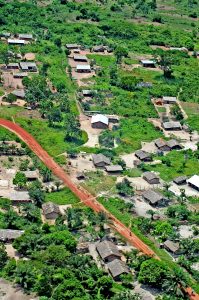
Conservation provides employment for local inhabitants at Dzanga Ndoki National Park, Central African Republic. ©Peter Prokosch, http://www.grida.no/resources/1516
Many centuries ago, a Greek philosopher noted that change is the only constant in life.
And change is brought about, in many instances, through discourse.
Discourse has been described in part as: “an ensemble of ideas, concepts and categories through which meaning is given to social and physical phenomena…”
According to this definition, discourse refers to a particular set of related ideas, which are shared, debated and communicated using different formats.
Through various discourses, we can discover fresh information and be introduced to new and different perspectives. We are able to gain experience and insight. As a result, our thinking, our attitudes, and our approaches toward various issues can evolve and change.
Certainly the ways in which forests are viewed, managed and developed have changed as the discourses concerning them have evolved. Read more…
IUFRO 125th Anniversary Congress Spotlight #55: Genetics research crucial to future forest health, adaptation, conservation and sustainable management
“The role genetics/genomics research can play in forest management is huge but, unfortunately, remains under-utilized,” said Dr. Om Rajora, Professor of Forest Genetics and Genomics at the University of New Brunswick, Canada.
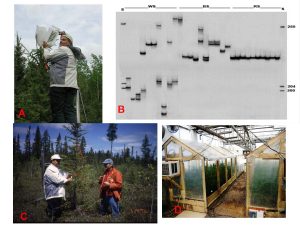
A. Controlled pollination in black spruce to produce F3 progeny at Petawawa Research Forest; B. DNA fingerprints of 10 individuals each of white spruce (WS), black spruce (BS) and red spruce (RS) at a genic microsatellite showing genetic diversity; C. Sampling of old-growth and post-harvest second-growth black spruce to examine the genetic effects of forest harvesting and renewal practices in Manitoba (Rajora and Pluhar 2003, Theor. Appl. Genet. 106: 1203-1212); D. Testing of three-generation outbred pedigree of black spruce under ambient and elevated CO2 conditions for QTL mapping of traits related to acclimation and adaptation to climate change. All pictures were taken by Dr. Om Rajora or his associates.
“Genetics/genomics research can greatly assist the management of natural and planted forests by conserving healthy, productive, well-adapted and genetically diverse natural forest and developing high yielding tree varieties with desired traits for deployment in plantations,” he said.
Dr. Rajora is the organizer and coordinator of a session entitled Genetics and Genomics for Conservation, Climate Adaptation and Sustainable Management of Forests to be presented at the IUFRO 125th Anniversary Congress in Freiburg, Germany in September. Read more…
IUFRO 125th Anniversary Congress Spotlight #51 – Pooling resources to meet sub-Saharan forest challenges
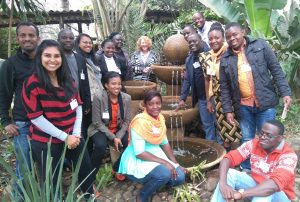
Training workshops for early and mid-career forest scientists across FORNESSA countries contribute to enhancing research competence and networking. (Photo by Michael Kleine, IUFRO)
Collaboration and cooperation are the keys to facilitating learning and making better use of research outcomes in sub-Saharan African countries facing severe forestry challenges.
That’s the philosophy behind Dr. Joseph Cobbinah’s upcoming session on the impact of forestry research on policy, livelihoods and economic development in sub-Saharan Africa. The session will take place at the IUFRO 125th Congress in Freiburg in September. Read more…
Interview with Professor Zhang Shougong, Chinese Academy of Forestry (CAF)
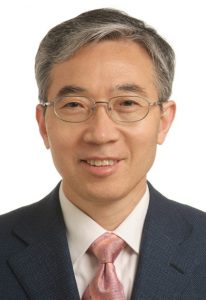
Professor Zhang Shougong, Chinese Academy of Forestry (CAF)
Keynote speaker at the IUFRO Regional Congress for Asia and Oceania –
Forests for Sustainable Development: The Role of Research
Professor Zhang, the IUFRO Regional Congress for Asia and Oceania 2016 is jointly organized by IUFRO and the Chinese Academy of Forestry. This is the first Congress of its kind to be held in the region of Asia and Oceania and will offer an extraordinary opportunity for enhancing forest science cooperation. You are one of the leading scientists in silviculture and forest management in China and have a long experience in the establishment of planted forests on the one hand, and sustainable forest management on the other hand. The Congress will particularly focus on these two areas with its themes “Planted forests for fostering a greener economy”, and “Sustainable forest management for enhanced provision of ecosystem services”. Read more…
Congress Spotlight #26: To manage forests sustainably – think synergy
To manage forests sustainably – think synergy
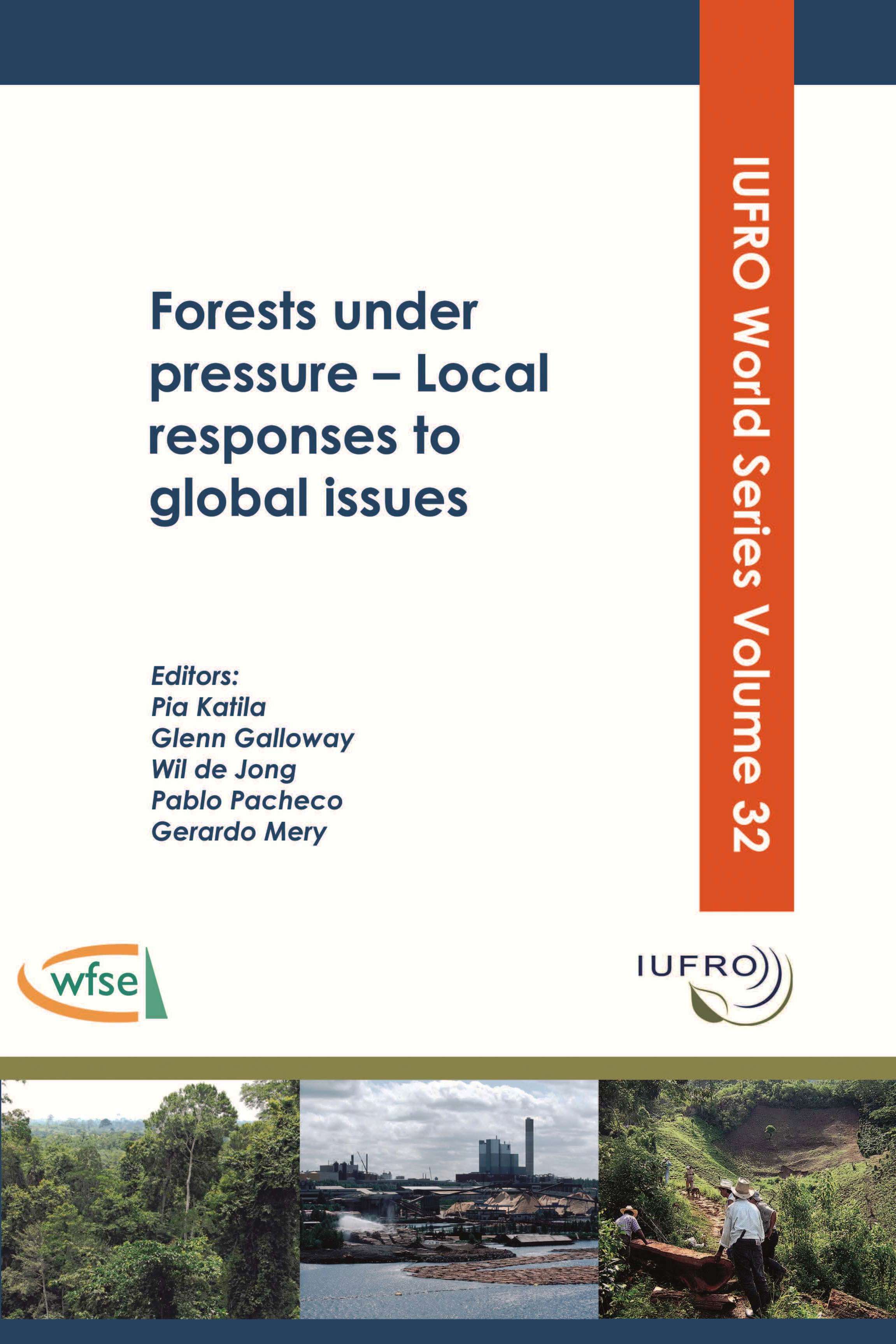 A comprehensive study of the conditions that assist sustainable forest development will be published at the upcoming IUFRO World Congress this fall in Salt Lake City, USA.
A comprehensive study of the conditions that assist sustainable forest development will be published at the upcoming IUFRO World Congress this fall in Salt Lake City, USA.
The title of the publication, produced by the IUFRO Special Project on World Forests, Society and Environment (IUFRO-WFSE), is Forests Under Pressure – Local Responses to Global Issues.
IUFROLAT III Keynote Address by Eduardo Mansur, FAO
Challenges and Opportunities for Sustainable Forest Management in a Changing Context
Wednesday, 12 June 2013
The first keynote speaker at IUFROLAT III was Eduardo Mansur, Director of FAO’s Forest Assessment, Management and Conservations Division. He talked about “Challenges and Opportunities for Sustainable Forest Management in a Changing Context”.
First, however, he conveyed greetings from Eduardo Rojas Briales, Assistant Director-General and Head of the Forestry Department, Food and Agriculture Organization of the United Nations, on whose behalf he was giving this presentation.
Mansur started by asking what the world should be like in 2050, when the world’s population is estimated to have exceeded 9 billion people.
Pressure on natural resources and the need for food will have increased tremendously by that time. He identified the following major challenges:
1) Food
2) Energy
3) Climate Change
In order to respond adequately to these, which are in fact closely interrelated, he explained various necessary approaches such as the landscape approach. He also underlined the big potential of restoration for improving the environmental situation without affecting food security.
In view of these challenges, the main objectives of FAO are:
1) Eradication of hunger
2) Elimination of poverty and strengthening of economic and social progress
3) Sustainable management of natural resources
Part of the response to these challenges is better governance of resources and more social participation. Integration and inter-sectorial approaches are key here. This is also especially true for forest research, which needs a more integrated approach.
Mansur explained concepts and tools that FAO has worked with so far and will continue to use in the future, such as the concept of sustainability, the forest resources assessment (FRA), criteria and indicators, etc.
In conclusion, he identified communication and social networks as a key tool to change people’s often blurred conceptions especially with regard to forest management. Science and research are essential here as they can provide the data and knowledge which will help to do away with erroneous perceptions and trade-offs between biodiversity and forest use, for example.

